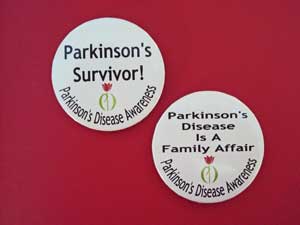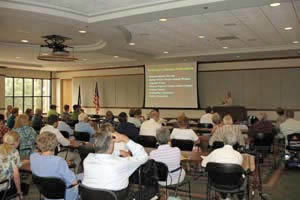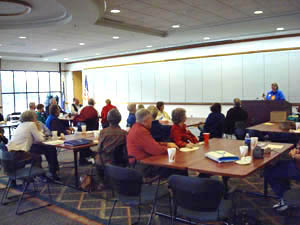|
 |
The STATE OF SOUTH CAROLINA
PARKINSON'S AWARENESS PROCLAMATION
APRIL 2013
Return to top of this page
History of South Carolina Governor's Proclamations Issued for April being Parkinson's Awareness Month
Each April, the majority of the states in our nation have Governor's Parkinson's Awareness Proclamation signing or presentation ceremonies. South Carolina has had Proclamations issued by our state Governors in the following years
No Proclamations issued prior to 2006
2006 = Yes Proclamation issued
2007 = Yes Proclamation issued
2008 = No Proclamation issued
2009 = Yes Proclamation issued with a Lt. Governor's ceremony
2010 = Yes Proclamation issued with a Governor's ceremony
2011 = Yes Proclamation issued
2012 = Yes Proclamation issued
2013 =
Yes Proclamation issued
The SC State House Governor's Proclamation ceremonies with our elected officials have been a major way for the SC Parkinson's community to help create Parkinson's awareness among the citizens of our state.
SC Governor's Proclamation events are another opportunity for South Carolina to join with the other US states in our nation, and with other nations to publicly celebrate April as "Parkinson's Awareness Month".
|
Return to top of this page
Return to top of this page
 Photo from
Photo from
maltaparkinsons.com |
Why does the Columbia Parkinson's Support Group and other Parkinson's groups and organizations have a red tulip as part of their logo?
The tulip symbol, the "Dr. James Parkinson Tulip", has been adopted by many Parkinson's disease organizations and groups around the world. The story of the Parkinson tulip began in 1980 in the Netherlands when J.W.S. Van der Wereld, a Dutch horticulturist who had PD, gave the name "Dr. James Parkinson" to the red and white tulip he had developed.
Note: Some PD organizations have a yellow tulip.
For the complete story about the "Dr. James Parkinson Tulip" click here
|
|
Return to top of this page
Another Parkinson Disease Symbol for PD Awareness
The tulip — a red flower with distinctive leaves shaped like the letters “p” and “d” — was designed by a "Young Onset" person with Parkinson’s (PWP) from Washington state — Karen Painter.
"While grassroots support for making Karen's tulip the national symbol for Parkinson’s awareness is growing, organizations and volunteers are encouraged to be proud of their organizational affiliation; and to use their own organization's symbol with pride. They should feel free to also use the PDTulip as a symbol that can represent ALL people with Parkinson's and ALL organizations and ALL scientists in the US who are working for the cure. Please show your support of the PDTulip for Parkinson's Awareness." by Supporters of the PDTulip for Parkinson's' Awareness |
|
Return to top of this page
What is the United States "Congressional Caucus on Parkinson’s Disease"?
Congressional Caucuses are formed by Members of US Congress to provide a forum for issues or legislative agendas. The "Congressional Caucuses on Parkinson's Disease" is made up of both US Representatives and Senators who have coalesced in an effort to find better treatments and a cure for Parkinson’s disease.
For a list of all the members of the US Congressional Caucus on Parkinson’s Disease click on this link
|
Return to top of this page
 Parkinson Awareness Buttons Designed by Kay Perricelli
Parkinson Awareness Buttons Designed by Kay Perricelli
Photo by Dottie Gantt |
|
|
| |
|
SITEMAP
Copying, reproducing, or redistributing any images or text content without written permission is prohibited.
©2008 by Columbia Parkinson's Support Group (CPSG), All Rights Reserved.
Page Last Updated
January 21, 2019
Site designed and maintained by Dottie M. Gantt
WEBSITE DISCLAIMER --- The CPSG has made every attempt to ensure the accuracy of information provided on the CPSG website. All information on the CPSG website is intended for informational purposes only and is not intended as medical or legal advice or recommendations. Any links to other websites found on the CPSG website are owned by third parties and the CPSG will not take responsibility for the information or content thereon. Links to such third party sites are not to be taken as an endorsement by the CPSG of the third party site or any products, services, or processes being offered by the third party.
|
|





